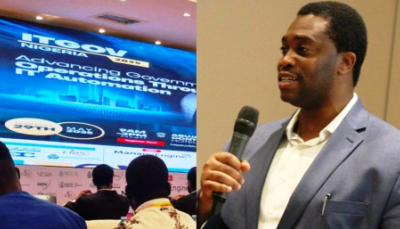6?s with Okechukwu Itanyi, Executive Commissioner, Stakeholder Management at NCC
Auctioning 2.3GHz will improve the quality of broadband service
Why is the NCC auctioning the remaining slot of the 2.3 GHz spectrum now?
First of all, as you know, we auctioned the 60MHz sometime ago, and the need to auction the 40 MHz right now is to fulfill the needs of the industry. In the first place, the operators want it; secondly we want a situation where the auctioning will improve the quality of broadband service and any other telecommunications service. Also we believe this is the right time to auction it because we don’t have any more licensing or spectrum to auction. So we feel this is the right time, basically why waiting for the next major auction which will be in 2015 when we will have the spectrum dividend from digitalization of television.
Existing operators want the license given to them instead of giving it to a new one; will the commission be dancing to their tone?
Well! That is the reason why we called this stakeholders’ forum to get the views of the operators and other stakeholders. This will help NCC to take a final decision. We are a participatory regulator; we believe in consultation, we believed in fairness, we are firm and we try to carry all the stakeholders along. At the end of the day, the views gathered or expressed here will help us to make a final decision.
When do you think an auction or a direct sale will take place since it is certain the spectrum is up for grabs?
I can’t tell you that now. We still have consultations to make among all the stakeholders, and we have to sit down and discuss all the views and take a decision.
Can you honestly say if the spectrum is offered to the existing operators, it will improve capacity?
From the presentations that have been made here today, it has been proven that is the case. It will improve capacity, it will improve efficiency, and it will probably reduce the cost of doing businesses. And at the end of the day, it will reduce the cost to the consumers from the presentations made here today. I can also verify that the position that has been taken by the presenters is correct, that increase in bandwidth usually follows increase in efficiency and increase in benefits for the provision of broadband and quality of service to our consumers in Nigeria.
How will you access the penetration level of broadband in the country, what other option is the commission exploiting to widen broadband penetration?
It is very low, we have a lot of work to do, which is one of the reasons we are here today. Some other options the commission is exploiting are: Number one is access to bandwidth by the operators, which is one of the reasons w are here today. Number two is to provide the infrastructure base for operators to thrive. I believe also that the third aspect is for the operators to invest in infrastructures to improve quality of service, access to broadband and so on to basically improve customers’ experience.
When is number portability going to take off?
Very soon! By the end of this month or close to it! The honest true is that we are facing some technical challenges, some operational challenges which we have to overcome before we can roll out number portability. Number portability basically gives you a choice to change your network from network A to B without necessarily losing your initial mobile phone number, your number continues to be yours even when you migrate to another network; that is the advantage. If you feel Operator A is offering you better services or rates, then you have the opportunity or the right to move to Operator A.
Debating to auction or not to auction the 2.3GHz band
Should the Nigerian Communications Commission (NCC) auction the remaining slot of 40 MHz spectrum in the 2.3GHz frequency band?
Internet Service Providers (ISPs), who constitute the operators within that range, are insisting that auctioning the slot to a fourth operator would create uneven level field for all players within this spectrum range and ultimately stifle broadband growth in the country. The Commission plans to auction 30MHz to one prospective bidder but the existing operators only have 20 MHz each to run their business. Their argument is that auctioning 30MHZ to a new operator would automatically tick the market in favour of the new entrant against the old players in the same way that a much broader spectrum tilted the market in favour of GSM operators against the much established CDMA operators. For them, uneven distribution of frequency spectrum helped GSM operators to effectively maul the CDMA operators. They foresee the same scenario playing out should the NCC auction a fourth operator. In 2009, the NCC licensed part of the 2.3GHz frequency band in slots of 20 MHz each to three direct beneficiaries: Mobitel, Spectranet and Direct on PC (DoPC). It kept 40MHz out of the available 100 MHz spectrum. Now, in refelction of market dynamics, the commission wants to auction 30 MHz out of the remaining 40 MHz to a fourth operator. It will then use the 10 MHz as guard band to check interference among the four operators. But the three existing operators fear a market siege on them by a fourth operator that has an additional 10 MHz to boot. They are asking the regulator to forget about auction and top up their frequency holding with an additional 10 MHz to raise each operator take to 30MHz in a way that would empower the operators to meet the rising demand for broadband access. But at the other end of the rope is the argument that topping up the three operators could mean the start of big monopolies. Whatever decision the NCC takes, it has only one guide to depend on: to resist the emergence of monopolies and sustain the growth of a competitive market.




























